Enhance Core Strength with Seated Exercises for Senior Health and Well-being
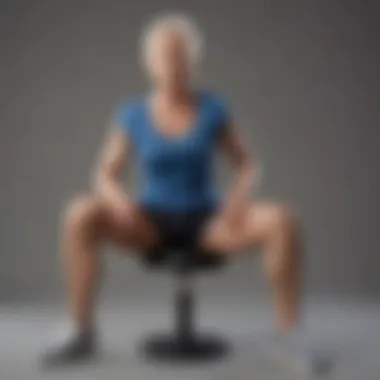
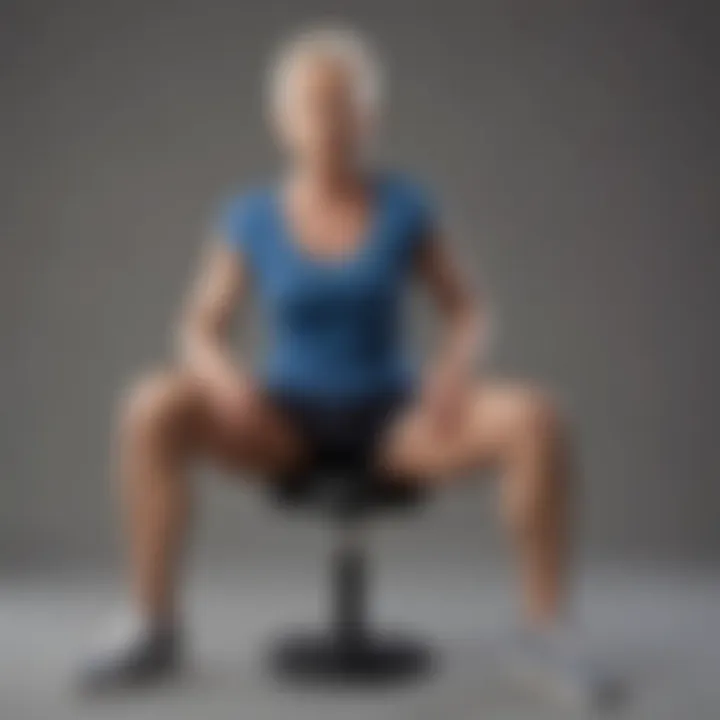
Wellness
Physical Health
Engaging in seated core strengthening exercises offers numerous physical health benefits for seniors. These exercises help to strengthen the muscles in the abdomen, lower back, and pelvis, leading to improved posture and stability. Enhanced core strength can alleviate lower back pain, a common issue among older adults, and support better spinal alignment. By promoting better overall physical health, these exercises contribute to a higher quality of life for seniors by enabling them to perform daily activities with greater ease and confidence.
Mental Health
The connection between physical activity and mental well-being is well-documented. Seated core strengthening exercises can have a positive impact on mental health for seniors by releasing endorphins, the body's natural mood elevators. Engaging in regular exercise, even while seated, can help reduce feelings of anxiety and depression, enhancing overall emotional well-being. Additionally, the sense of accomplishment and empowerment that comes from completing these exercises can boost confidence and self-esteem among seniors, further improving their mental health.
Nutrition and Diet
While seated core strengthening exercises play a crucial role in physical health, it is essential to complement these workouts with a balanced and nutritious diet. Seniors should prioritize foods rich in essential nutrients, vitamins, and minerals to support muscle strength and recovery. Incorporating lean proteins, whole grains, fruits, and vegetables into their diets can aid in maintaining energy levels and promoting overall health. Hydration is also key, as staying well-hydrated supports proper muscle function and overall well-being.
Fitness and Exercise
Incorporating seated core strengthening exercises into a senior's fitness routine can significantly enhance their overall exercise regimen. These exercises provide a low-impact yet effective way to improve core strength, making them suitable for individuals with mobility issues or joint pain. By diversifying workout routines to include seated core exercises, seniors can work towards a more balanced fitness profile, focusing on core stability alongside cardiovascular health and flexibility. Regular practice of these exercises can lead to noticeable improvements in strength, endurance, and mobility for seniors.
Introduction
In the realm of senior fitness, core strength holds a pivotal role in ensuring overall well-being and quality of life. This article delves deep into the significance of seated core strengthening exercises tailored specifically for seniors. By emphasizing enhancing core stability whilst seated, older adults can experience notable improvements in balance, stability, and physical health. The exercises featured in this comprehensive guide are thoughtfully designed to be both accessible and highly effective, addressing the unique needs and limitations often faced by seniors in pursuit of maintaining their vitality.
Understanding the Importance of Core Strength for Seniors
As individuals age, maintaining core strength becomes increasingly crucial. The core muscles- encompassing the abdomen, back, and pelvis- serve as the foundation for almost all movements, from simple daily activities to more complex exercises. For seniors, robust core muscles are vital in promoting better posture, reducing the risk of falls, and supporting overall stability and mobility. By focusing on enhancing core strength through targeted exercises, seniors can significantly enhance their quality of life, independence, and physical resilience.
Benefits of Seated Core Strengthening Exercises
The benefits of incorporating seated core strengthening exercises into a senior's fitness routine are manifold. By engaging in these exercises, older adults can experience improvements in balance, coordination, and posture. Additionally, strengthening the core muscles can help alleviate back pain, enhance spinal alignment, and decrease the likelihood of injuries. Furthermore, seated core exercises provide a safe and accessible method for seniors to enhance their physical strength and functional abilities, contributing to a higher quality of life and increased independence.
Overview of Seated Core Strengthening Exercises in this Article
This article presents a curated selection of seated core strengthening exercises tailored specifically for seniors. Each exercise is accompanied by detailed instructions on proper form, techniques, and variations to suit different fitness levels. The exercises featured, such as Seated Marching, Seated Leg Extensions, Seated Torso Twists, Seated Side Bends, Seated Pelvic Tilts, Seated Abdominal Crunches, Seated Knee Raises, Seated Heel Slides, and Seated Arm Raises with Resistance, aim to target different areas of the core while ensuring safety and efficacy. By exploring and incorporating these exercises into their daily routine, seniors can enhance their overall physical well-being, stability, and vitality.
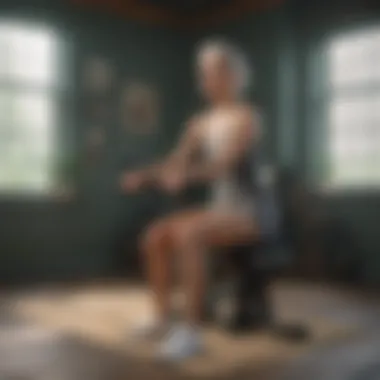
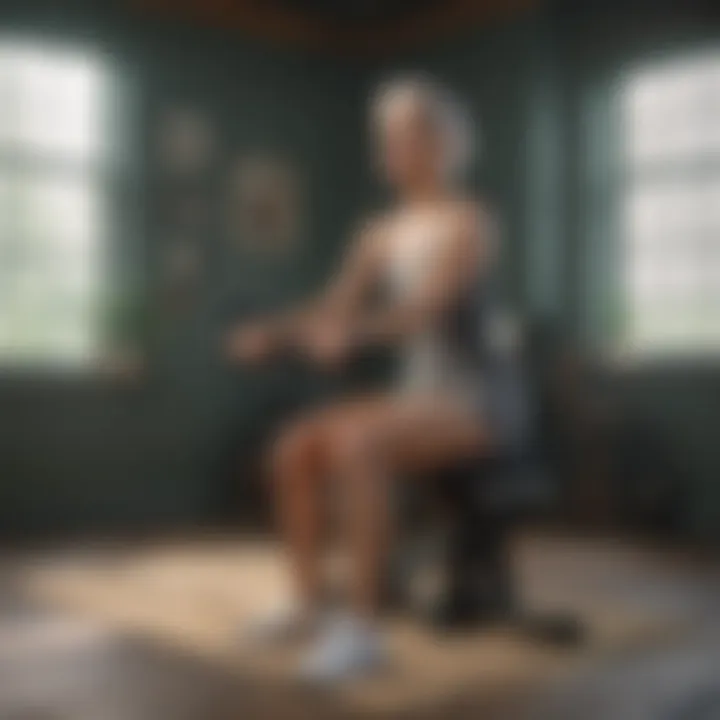
Seated Core Strengthening Exercises
Seated core strengthening exercises play a vital role in the overall well-being of seniors. As individuals age, maintaining core strength becomes increasingly crucial for enhancing balance, stability, and functional independence. These exercises, specifically tailored for seniors, not only target core muscles but also contribute to improved posture and reduced risk of falls. Furthermore, by focusing on seated variations, these exercises ensure accessibility and safety for older adults with varying physical abilities.
Seated Marching
Steps to Perform Seated Marching
Seated marching involves lifting alternate legs in a controlled manner while remaining seated. This exercise aids in activating core muscles, improving circulation, and promoting joint flexibility. The rhythmic movement of lifting the legs mimics walking, making it an effective low-impact cardiovascular exercise for seniors. Additionally, seated marching helps in maintaining leg strength and coordination.
Tips for Maximizing the Benefits
To maximize the benefits of seated marching, ensure proper posture by sitting upright with feet flat on the floor. Engage the core muscles throughout the movement to enhance the exercise's effectiveness. Gradually increase the pace and lift height as strength improves. It is advisable to perform this exercise in a sturdy chair with back support to prevent any strain.
Seated Leg Extensions
Guidelines for Seated Leg Extensions
Seated leg extensions involve straightening one leg at a time while seated, targeting the quadriceps and enhancing lower body strength. This exercise can be beneficial for seniors looking to improve mobility and muscle tone in the legs. It is essential to execute leg extensions in a controlled manner to prevent any strain or injury.
Variations to Increase Difficulty
To increase the difficulty of leg extensions, consider adding ankle weights or resistance bands. These modifications can provide additional challenge to the muscles and promote further strength gains. It is important to choose appropriate resistance levels based on individual fitness levels and avoid any jerky or sudden movements to maintain safety.
Seated Torso Twists
Techniques for Seated Torso Twists
Seated torso twists involve rotating the upper body from side to side while keeping the core engaged. This exercise helps in improving spinal mobility, enhancing torso flexibility, and toning the oblique muscles. Proper form and controlled movements are key to reaping the full benefits of seated torso twists.
Precautions to Take
While performing seated torso twists, it is essential to avoid straining the back or neck. Seniors with existing back issues should exercise caution and may need to limit the range of motion. Consulting a healthcare professional before incorporating torso twists into a routine is advisable to ensure safety and effectiveness.
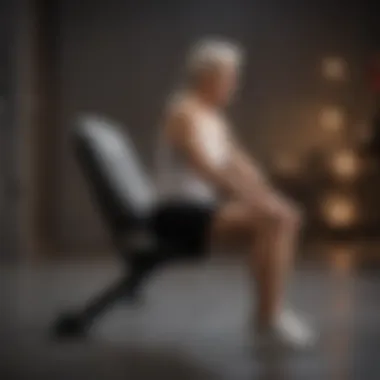
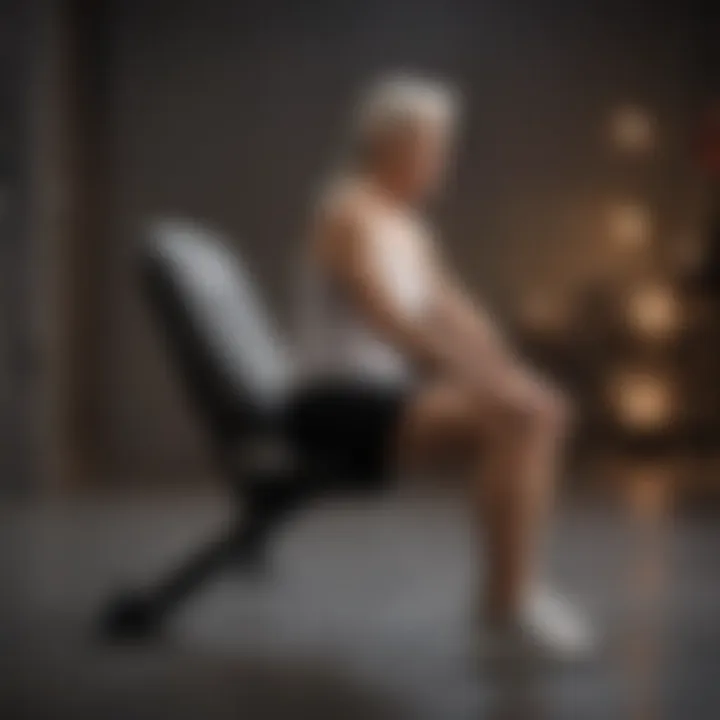
Seated Side Bends
Execution of Seated Side Bends
Seated side bends involve bending the torso sideways while seated, targeting the obliques and promoting core stability. This exercise can help in enhancing spinal flexibility and muscle endurance in the abdominal area. Regular practice of seated side bends contributes to improved posture and balance.
Benefits for Core Muscles
Seated side bends are effective in strengthening the core muscles, especially the obliques, which are essential for spinal support and rotational movements. By engaging these muscles, seniors can experience enhanced functional strength for daily activities and reduced strain on the lower back.
Seated Pelvic Tilts
Instructions for Performing Seated Pelvic Tilts
Seated pelvic tilts involve tilting the pelvis forward and backward while seated, targeting the lower abdominal muscles and lower back. This exercise helps in improving pelvic mobility, promoting better posture, and relieving tension in the lower back. Proper alignment and controlled movements are key to maximizing the benefits of seated pelvic tilts.
Importance for Core Stability
Seated pelvic tilts are crucial for enhancing core stability, which is essential for maintaining balance and preventing falls. By strengthening the muscles around the pelvis and lower back, seniors can improve their overall stability and reduce the risk of injuries. Consistent practice of pelvic tilts can lead to better posture and functional movement patterns.
Seated Abdominal Crunches
Proper Form for Seated Abdominal Crunches
Seated abdominal crunches involve contracting the abdominal muscles while seated, targeting the rectus abdominis and promoting core strength. This exercise can help in sculpting the abdominal area and improving overall core stability. Maintaining proper form by keeping the spine aligned and avoiding excessive strain is crucial for the effectiveness of seated abdominal crunches.
Avoiding Common Mistakes
When performing seated abdominal crunches, it is important to avoid pulling on the neck or using momentum to lift the upper body. Seniors should focus on engaging the core muscles and moving with control to prevent any strain or discomfort. Gradually increasing the number of repetitions can lead to greater strength gains over time.
Seated Knee Raises
Steps to Do Seated Knee Raises
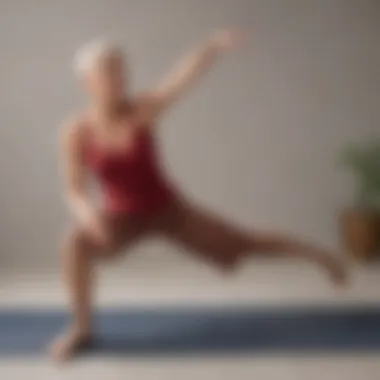
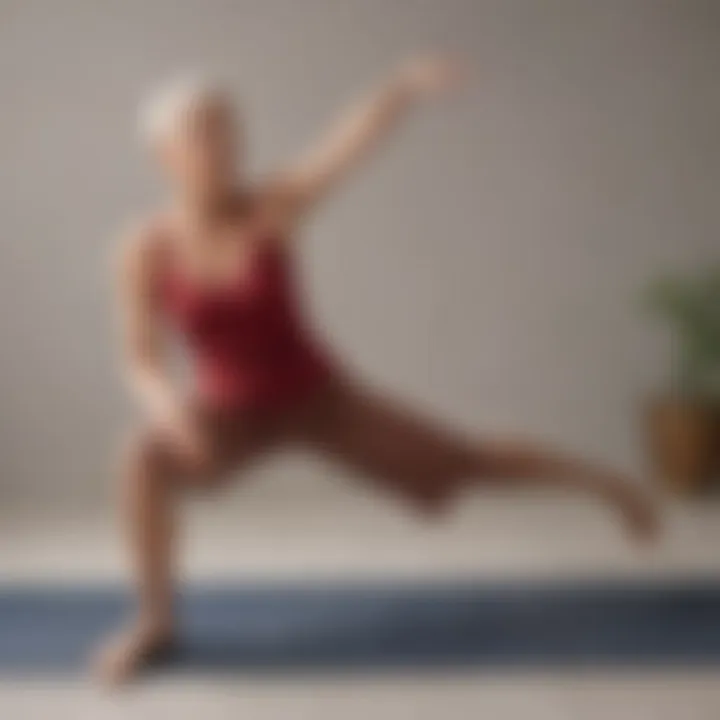
Seated knee raises involve lifting the knees towards the chest while seated, targeting the hip flexors and lower abdominal muscles. This exercise can aid in improving hip mobility, strengthening the core, and enhancing balance. Performing seated knee raises with proper form and control is essential for reaping the maximum benefits.
Adaptations for Different Fitness Levels
To accommodate varying fitness levels, seniors can modify the intensity of knee raises by adjusting the height of the knee lift or adding ankle weights for resistance. These adaptations can help individuals challenge their muscles appropriately and progress at a pace suitable for their abilities. It is important to listen to the body's cues and avoid any excessive strain during the exercise.
Seated Heel Slides
Techniques for Seated Heel Slides
Seated heel slides involve sliding one heel along the floor at a time while seated, engaging the hamstring muscles and promoting lower body mobility. This exercise can assist in improving hamstring flexibility, strengthening the legs, and enhancing overall lower body function. Maintaining a steady pace and focusing on each leg's movement can optimize the benefits of seated heel slides.
How to Progress Gradually
Seniors can progress with seated heel slides by increasing the range of motion or adding mild resistance, such as a small exercise ball between the heel and floor. Gradual progression allows for muscle adaptation and continued improvement in leg strength and flexibility. It is essential to perform heel slides consistently and mindfully to avoid any strain or discomfort.
Seated Arm Raises with Resistance
Guidance on Seated Arm Raises
Seated arm raises with resistance involve lifting the arms against resistance while seated, targeting the shoulder muscles and promoting upper body strength. This exercise can help in enhancing arm definition, improving shoulder stability, and boosting overall functional capacity. Maintaining controlled movements and choosing the appropriate level of resistance are important for the efficacy of seated arm raises.
Choosing the Right Resistance Level
When performing seated arm raises with resistance, seniors should select resistance bands or weights that challenge the muscles without causing strain. Gradually increasing the resistance as strength improves can lead to continued progress and muscle development. It is advisable to focus on quality repetitions and avoid using momentum to lift the arms for optimal results.
Conclusion
Incorporating Seated Core Strengthening Exercises into Daily Routine
Delving into the realm of incorporating seated core strengthening exercises into daily routine unveils a transformative approach towards nurturing physical health. By seamlessly integrating these exercises into one's everyday schedule, seniors can embark on a path that leads to improved balance, stability, and holistic well-being. This section will illuminate the intricacies of seamlessly infusing these exercises into daily practices, thereby fostering a sustainable commitment to enhancing core strength and overall physical fitness.
Importance of Consistency and Progression
The significance of consistency and progression in the realm of seated core strengthening exercises cannot be overstated. By emphasizing the virtues of regularity and the gradual advancement of exercise intensity, seniors can unlock the full potential of their core strength development journey. Through a steadfast commitment to consistency and a strategic approach to progression, older adults can witness tangible improvements in balance, stability, and overall physical resilience, ensuring a lasting impact on their well-being.
Consultation with Healthcare Professional
Amid the pursuit of incorporating seated core strengthening exercises into one's routine, seeking guidance from a healthcare professional stands as a crucial step towards ensuring safe and effective practice. By consulting with experts in the field of senior fitness, individuals can receive personalized recommendations, address specific health concerns, and tailor their exercise regimens to align with their unique needs and physical capabilities. This section will shed light on the paramount importance of healthcare professional consultation in the realm of seated core strengthening exercises, underscoring the value of expert guidance in nurturing optimal physical health and well-being.



